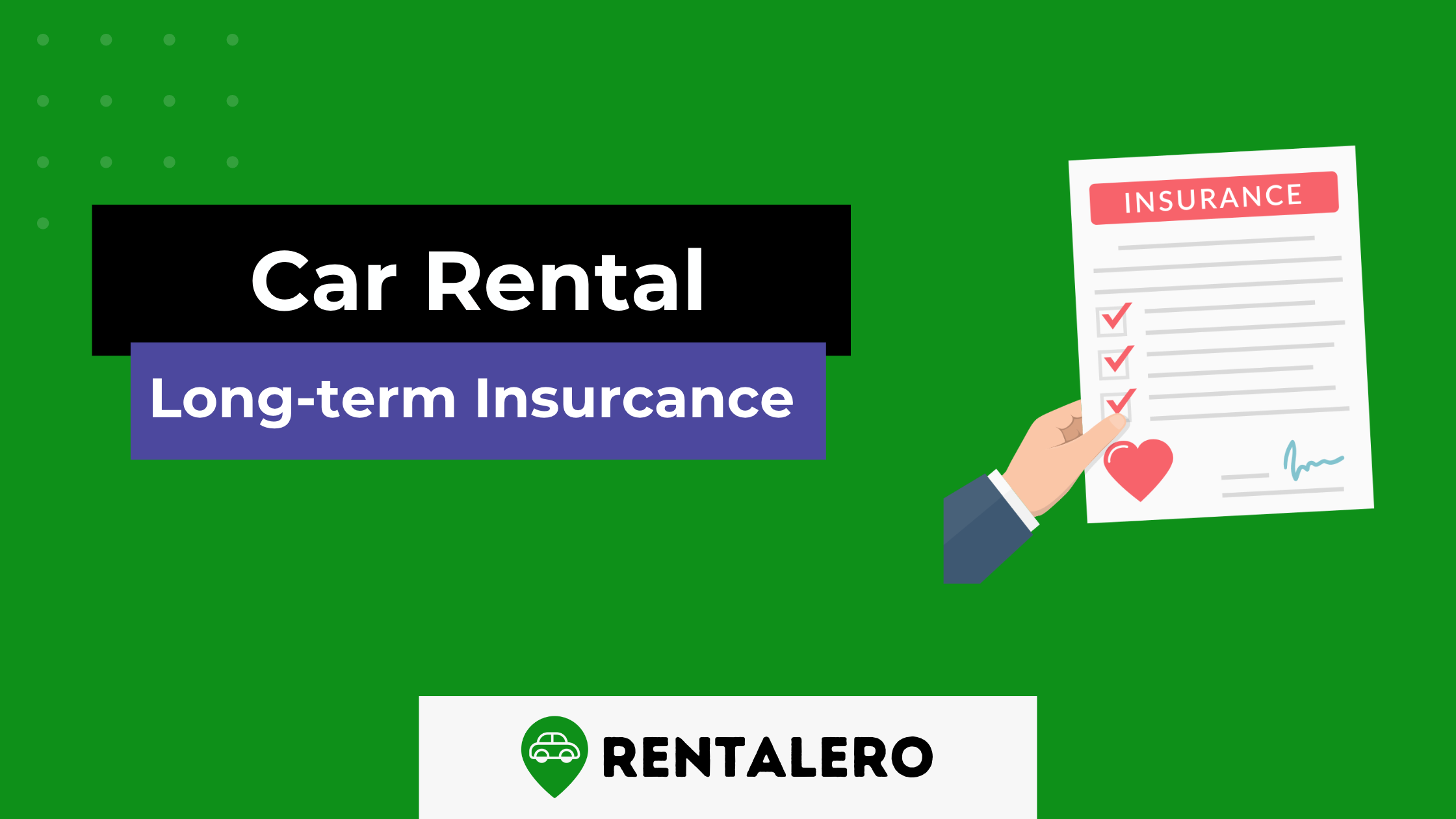Long-term car rentals can be an excellent solution for those who require a vehicle for extended periods.
Whether you’re on a prolonged business trip, a long vacation or need a temporary replacement vehicle, understanding the intricacies of long-term car rental insurance becomes crucial.
This article will delve into long-term car rental insurance, offering insights into what it covers, the potential pitfalls, and how it differs from short-term policies.
Advertising links are marked with *. We receive a small commission on sales, nothing changes for you.
Key Takeaways
- Long-term car insurance is necessary when renting a car for more than 15 days, protecting financial liabilities.
- You can secure long-term car rental insurance through various sources, including the rental dealership, personal insurance, credit card benefits, or rental car company.
- Typical long-term car rental insurance includes liability coverage, collision damage waiver, personal accident insurance, and personal effects coverage.
- The cost of long-term car rental insurance can be influenced by multiple factors, including the rental duration, vehicle type, coverage level, driving history, and rental location.
- Always check with multiple sources to find the best long-term car rental insurance that suits your needs and budget.
Understanding Long-Term Car Rental Insurance
The decision to rent a car for an extended period comes with several considerations, including insurance. This is where the concept of long-term car rental insurance comes into play.
But what exactly is it? And why is it necessary when renting a car for more than 15 days?
As the name implies, long-term car rental insurance is a policy that provides coverage for rented vehicles over an extended period.
This type of insurance is designed to offer protection against potential financial risks associated with accidents or damages to a rental car that you would be using for a substantial duration.
It’s quite akin to regular auto insurance but with the distinction that it applies to a vehicle you don’t own but rent.
When you rent a car for a short period, say a few days, the chances of encountering an incident might be small. However, when the rental duration extends to more than 15 days, the probability of potential risks increases.
This extended period intensifies the necessity of having long-term rental insurance.
If an accident occurs without insurance, you could be personally liable for repair or replacement costs. Remember, you assume responsibility for a valuable asset when renting a car. Without appropriate coverage, damages to the vehicle, no matter how small or large, could lead to considerable out-of-pocket expenses.
The financial implications could be significant and impact your savings or budget.
Another aspect to consider is the likelihood of liability claims. For example, if you’re involved in an accident, and it’s deemed your fault, you could be held responsible for medical costs if other people are injured or for property damage.
Long-term car rental insurance typically includes liability coverage to protect you from these potentially substantial costs.
Options for Obtaining Long-Term Car Rental Insurance
After understanding the importance of long-term car rental insurance, the next step is identifying the best ways to secure this coverage. There are several routes to obtaining long-term rental insurance, each with its considerations.
Through the Rental Dealership
One of the most straightforward ways to secure long-term car rental insurance is through the rental dealership itself. Most rental companies offer a variety of insurance packages that you can add to your rental agreement.
These packages can be convenient as they provide immediate coverage tailored to the rental situation.
However, it’s important to note that insurance offered by rental dealerships can be quite expensive, often significantly more than other options.
The coverage provided by rental dealerships typically includes collision damage waiver (CDW), liability insurance, personal accident insurance, and personal effects coverage. Before purchasing insurance from the dealership, it’s essential to read and understand the policy details, including deductibles, coverage limits, and exclusions.
Personal Insurance Policy
Your existing auto insurance policy might already provide coverage for rental cars—most major auto insurers under your policy cover rental cars for up to 30 days.
However, the specifics can vary greatly from one policy to another, so it’s crucial to contact your insurance provider to confirm the details.
Sometimes, your insurance may only cover the rental car to the same extent as your vehicle.
For example, if you don’t have comprehensive collision coverage on your personal car, you may not have these coverages on your rental car either. Moreover, any claims made while driving the rental car would typically be subject to the same deductible as your personal car.
Credit Card Benefits
Many credit card companies offer rental car insurance as a benefit to cardholders. This coverage often occurs when you use the card to pay for the rental car.
However, credit card benefits usually provide secondary coverage, which means they only pay for what your personal auto insurance doesn’t cover.
Furthermore, some credit cards only offer collision and theft protection, excluding liability coverage for damage to other vehicles or injuries to other people. There may also be restrictions on the type of vehicle covered and the rental duration. Hence, you must contact your credit card company to understand what’s covered fully.
Rental Car Company’s Insurance
In addition to the dealership, rental car companies often offer their own insurance policies.
These policies are typically comprehensive, offering coverage for damage, theft, liability, and personal effects. However, similar to dealership-offered insurance, these policies can be more expensive than other options.
One of the main benefits of purchasing insurance from a rental car company is the convenience of having the rental and insurance charges on one bill. However, reading the fine print to understand the coverage limits and exclusions is still important.
Types of Coverage in Long-Term Car Rental Insurance
Long-term car rental insurance is not a single, uniform entity; it comprises several distinct types of coverage.
Understanding these types is essential to ensuring you have the necessary protection while driving a rental car for an extended period. Let’s explore the typical coverage included in long-term car rental insurance.
Liability Coverage
Liability coverage is one of the primary components of long-term rental car insurance.
It covers damage to other vehicles and property and injuries to other people that result from an accident where you’re at fault. Liability coverage is usually required by law, and rental companies typically include a basic amount in their rental agreements.
However, this basic coverage often has relatively low limits, and you may want to consider additional coverage to protect yourself adequately.
Collision Damage Waiver (CDW)
A Collision Damage Waiver, also known as Loss Damage Waiver (LDW), is not technically insurance.
Instead, it’s an agreement that the rental company will waive its right to charge you for damage to the rental car in case of an accident. CDWs typically cover the vehicle’s repair costs, towing charges, and loss of use fees, but they often come with exceptions and exclusions.
Personal Accident Insurance (PAI)
Personal Accident Insurance covers medical costs for you and your passengers if you’re involved in an accident. This can include ambulance fees, hospital stays, and even death benefits.
While it’s important coverage, you may already have similar benefits through your health or personal auto insurance.
Personal Effects Coverage (PEC)
Personal Effects Coverage protects your belongings in the vehicle from theft. If you’re traveling with valuable items, PEC can provide peace of mind.
However, remember that homeowners’ or renters’ insurance often covers personal belongings away from home, including those in a rental car.
Factors Affecting the Cost of Long-Term Car Rental Insurance
While it’s clear that long-term car rental insurance is important, the cost of this coverage can vary. Several factors can influence the price of your long-term rental insurance. Let’s take a closer look.
Length of Rental
The duration of your car rental is a significant factor in determining insurance costs. The longer you rent a car, the more you’ll generally pay for insurance.
Most insurance policies have daily rates, which add up over time. However, some rental companies may offer discounted rates for longer rentals.
Type of Vehicle
The type of vehicle you’re renting can also impact the insurance cost. More expensive cars often have higher insurance rates due to the potential for more costly repairs or replacements.
Your Driving History
As with personal auto insurance, your driving history can impact the rental car insurance cost. Drivers with a clean record typically pay less than those with a history of accidents or violations.
Location
Insurance rates can also vary by location due to differences in local laws, accident rates, and theft rates. For example, you may pay more for insurance if you’re renting a car in a large city with high traffic and theft rates compared to a rural area.
Conclusion
As we conclude, it’s crucial to remember that long-term car rental insurance is essential to renting a vehicle for an extended period.
It provides a safety net that protects you from potentially significant financial liabilities due to accidents, damage, or theft.
Frequently Asked Questions
Does my personal car insurance cover long-term car rentals?
Most personal car insurance policies cover rental cars, but the duration can vary, and the policies may not be straightforward. It’s best to check with your insurer.
What factors affect the cost of long-term car rental insurance?
Several factors can influence the cost, including the length of the rental, the type of vehicle, coverage levels, your driving history, and the rental location.
What types of coverage are included in long-term car rental insurance?
Typical coverage includes liability coverage, collision damage waiver, personal accident insurance, and personal effects coverage.

Nzoputa has been writing for Rentalero since day one and is one of our most experienced members when it comes to the rental industry. For her, nothing beats Uber!
Advertising links are marked with *. We receive a small commission on sales, nothing changes for you.

